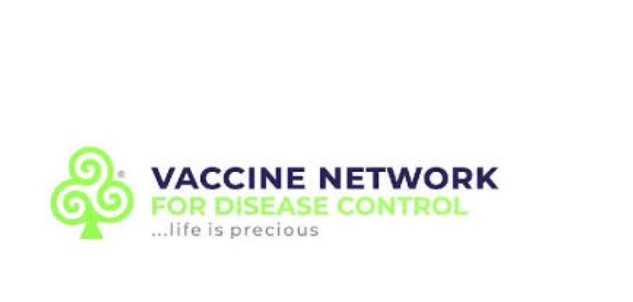SCIENCE

VACCINE NETWORK CALLS FOR A SUSTAINABLE STRATEGY TO FUND IMMUNIZATION PROGRAMS
The Vaccine Network for Disease Control (VNDC) is advocating for a sustainable and predictable immunization financing strategy in Nigeria to safeguard the nation's immunization achievements and prevent potential setbacks.
During a recent press conference in Abuja, VNDC's CEO, Chika Offor, acknowledged the government's efforts in releasing outstanding vaccine funds from 2022 and 2023, as well as 25% of the 2024 vaccine budget. She commended President Bola Tinubu, Health Minister Prof. Ali Pate, and Finance Minister Wale Edun for their leadership in enhancing immunization efforts under the Maternal, Adolescent, and Neonatal Immunization (MAMI) initiative.
However, Offor emphasized the need for a more robust and sustainable financing framework. VNDC has called on President Tinubu to direct the Ministry of Budget and National Planning to establish a predictable and sustainable immunization financing framework. Additionally, they urge the National Assembly to include vaccine financing as a first-line charge in the yearly budget to ensure timely and predictable funding for immunization.
The push for sustainable immunization financing comes amid concerns over dwindling donor support and weak domestic financing, which threaten Nigeria's decades-long efforts to protect children from vaccine-preventable diseases.
VNDC's advocacy aligns with broader regional efforts, such as the VacciNations Campaign, which brings together partners to secure resources for routine immunization programs in Africa.
By prioritizing sustainable vaccine financing, Nigeria aims to build a resilient immunization system that ensures the health and well-being of its population, particularly children, and contributes to global health security.
Offor noted that Nigeria remains one of the countries with the highest number of zero-dose children—those who have never received any routine vaccine- adding that these numbers represent real lives and futures at stake.
She said, “We cannot afford to let vaccine shortages put our children at risk. A sustainable vaccine financing strategy is essential to ensure predictable funding and timely vaccine supply. Vaccines have saved millions of lives and remain central to Nigeria’s health and development goals.
“In two decades, immunization efforts have eradicated the wild poliovirus, protected over 30 million children under five and achieved 71 per cent national HPV vaccination coverage, and protected over 12 million girls.
“We urge the government to include vaccine financing as a first-line charge in the national budget, ensuring timely disbursement and sustainability. Currently, vaccine funds are part of the Service-Wide Vote, making disbursement uncertain.
“Immunization is not just a health priority—it is a smart economic investment that saves lives and reduces healthcare costs. We urge state and local councils to allocate dedicated vaccine funding, ensure timely budget releases, and establish accountability mechanisms to ensure effective resource utilisation.”
Chika Offor, Chief Executive Officer of the Vaccine Network for Disease Control (VNDC), has praised President Bola Tinubu for his commitment to strengthening Nigeria’s immunization efforts. She highlighted the release of outstanding funds and the allocation of 25% of the 2024 vaccine budget as positive steps. Offor also described the proposed ₦231.7 billion allocation in the 2025 budget for immunization, malaria vaccination, and vaccine tracking as a major milestone toward achieving universal vaccine coverage.
“We appreciate President Bola Tinubu’s pledge to invest ₦1 trillion in revitalizing Primary Healthcare Centres (PHCs). A robust PHC system means improved vaccine access, fewer zero-dose children, and better health outcomes,” Offor stated.
She emphasized the urgency of collective action: “The time to act is now. We must unite to ensure no child is left behind. Every child, every eligible girl, and every community deserves access to life-saving vaccines. Let’s make smart investments in immunization to secure our nation’s future.”
Supporting this call, Chairman of the National Health Insurance Authority (NHIA), Senator Ibrahim Oloriegbe, stressed the importance of local vaccine production. “Given our human resource capacity and technological progress, Nigeria should be producing its own vaccines. This would reduce costs and improve accessibility. It’s time we begin investing in domestic vaccine manufacturing, especially for routine immunizations,” he said.
"This represents a significant development in our ongoing coverage of current events."— Editorial Board









